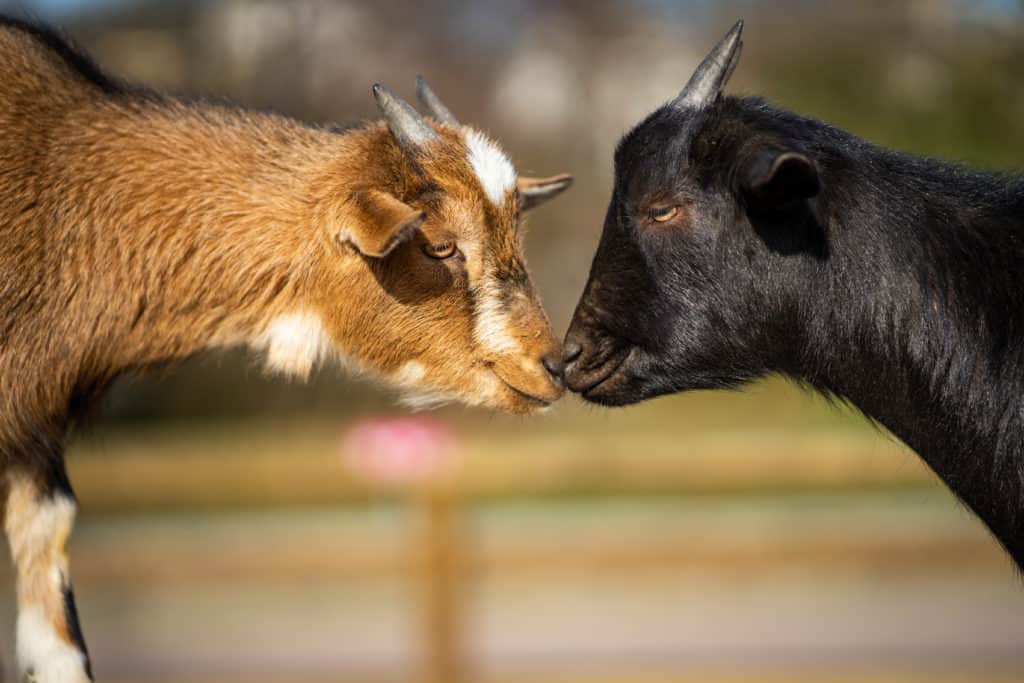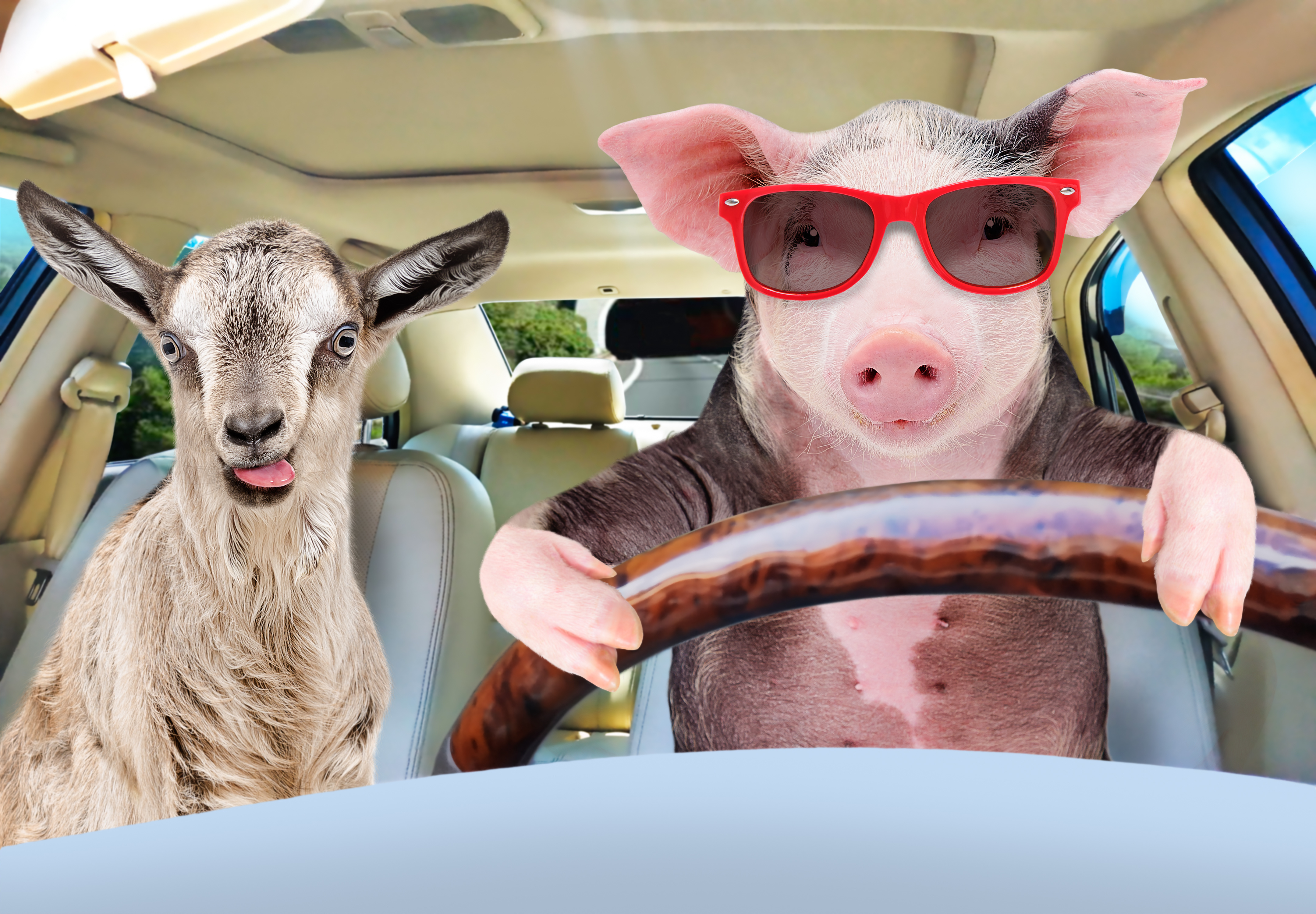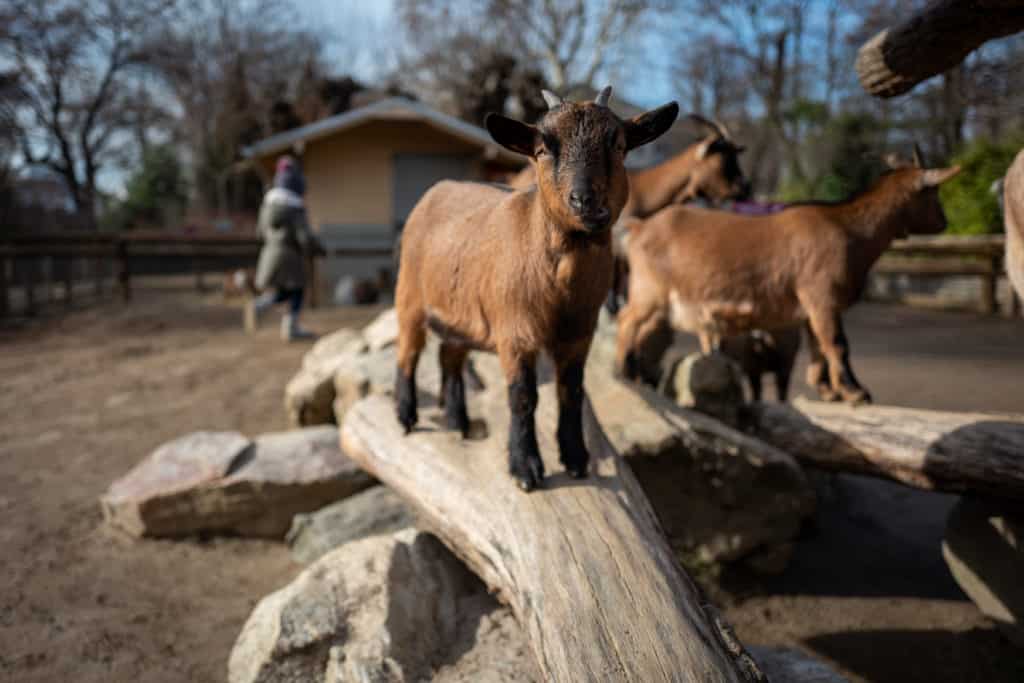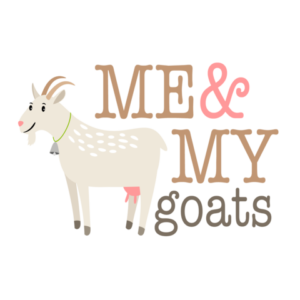
Goats are really cool and expressive animals. It’s fairly recent science that goats are able to recognize each others emotions through their calls. But are the goats using a language, or are these sounds totally natural?
While goats in different communities do develope dialects of a kind, they can usually still learn to understand one another. This means that goats from different places should still be able to communnicate, even if they may still have some difficulty.
Isn’t that interesting! Goats are actually some of the only creatures that have different dialects depending on where they were raised, along with people and whales. But don’t throw your goats in the ocean just yet, they probably can’t hold their breath as well as whales do.
Goat Communication
The question of this article assumes that goats are able to communicate with each other at all. Actually, that’s true!
Experiments have shown that goats can tell the difference between the cry of a goat that is happy and the cry of one in distress, and they react to these cries accordingly relaxing when they hear happy goats and stressing out when they hear frustrated goats.
This means that a community of goats are definitely able to do rudimentary communication with one another for whatever reasons they might have.
But don’t worry about your goats plotting against you. It doesn’t seem like they’re able to communicate concepts more complicated than basic emotions.
This also means that you probably won’t ever be able to fully understand goat language yourself. According to National Geographic, the cry of a frustrated goat can sound almost exactly the same as the cry of a happy goat to human ears.
What this should make you do is be careful with how you treat each of your individual goats, since an upset feeling can quickly spread from goat to goat making your entire trip feel bad.
Goat Dialects
To the point of dialects: Goats that are raised in different places do gain different dialects, although this is less about geographic location than it is the particular community they were raised in.
As young goats grow to adulthood, they begin to take on the cries of the other goats that they live with. Their parents, other goats in the trip, and their siblings, all have some effect on the way that these goats end up sounding.
We know that this isn’t a genetic issue because two siblings seperated at birth and put into different trips will always end up picking up the call of their new trip and not the trip of their parents.
This is theorized to help goats identify strangers, but the question remains as to whether it provides a bar to communication between goats.
This doesn’t seem to be the case. It seems that the differing cries act as a kind of badge of trust between goats, but there isn’t really any evidence that the goats actually can’t understand each other.
It is also the case that most animals who learn their vocalizations from their peers can learn new vocalizations over time. This is true of dolphins, birds, people, and bats, although there isn’t yet any evidence that it’s true for goats as well
That being said, further research on the topic is needed, and it’s possible that new science will prove this article wrong in a couple of years.
In the mean time, it’s probably okay for you to introduce new goats into your trip, they will probably be perfectly able to understand one another.
Is This Typical Of Animals

Goats do it. People do it. Birds do it. Can other animals learn their vocalizations from their communities?
The general scientific consensus at present is that most animals’ cries are genetically determined. This means that no matter where they grow up they’ll still have the cry passed down by their parents.
This means that animal ‘languages’ are essentially genetically encoded for most creatures on earth. This brings up a lot of really interesting questions about the evolution of language, since evidence has shown that human language is not at all ingrained in us.
With only a few exceptions (laughing, crying, and screams of pain come to mind) most expressions humans use depend on social learning, right down to the noises we make when we’re working out!
So what happened? Are those few genetically encoded noises all that is left of a language that used to be inherent in our bodies, or are they unrelated functions that have taken on linguistic meaning?
What about in people who are raised in the wild, or in isolation? Will they still laugh or cry or scream? I don’t know the answers to those questions because they aren’t about goats.
Goats: Evolution
We do actually know some of this for goats. When goats are quite young, they do tend to make the same vocalizations as their siblings do even if they are seperated. This means that while most of the goat vocabulary is learned there is at least some component that is genetic.
If this is the case, then it is fairly likely that even goats that speak totally unrelated dialects may still be able to understand each other. They may still have the right genetic coding to pick up what they mean through tone or timber or some other as of now unknown variable that only goats have the power to discern.
This would be evolutionarily advantageous for the goats, because it would mean that in the event that a goat was somehow seperated from its trip it could potentially join up with other lost goats to make a new trip, increasing all of their chances for survival.
It would also come in handy for domestic goats, since domestic goats often end up getting transplanted from one group to another and need the same amount if not more attention from their fellows.
Goats: Revelations
Hopefully you’ve learned something about goats and are a little less nervous to take new goats into your trip. Their dialect may be a little tough for your goats to parse at first, but with time understanding should come.

